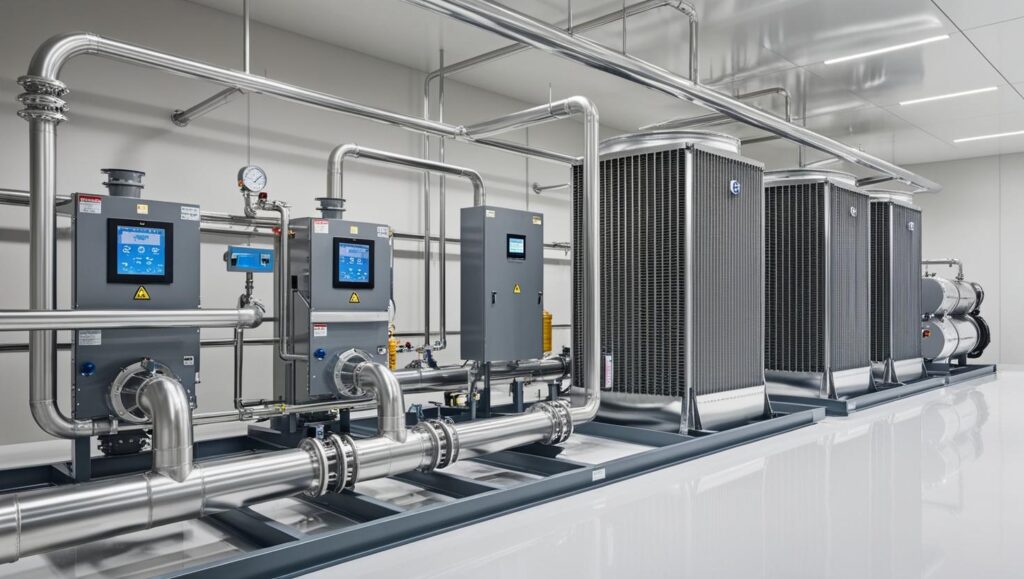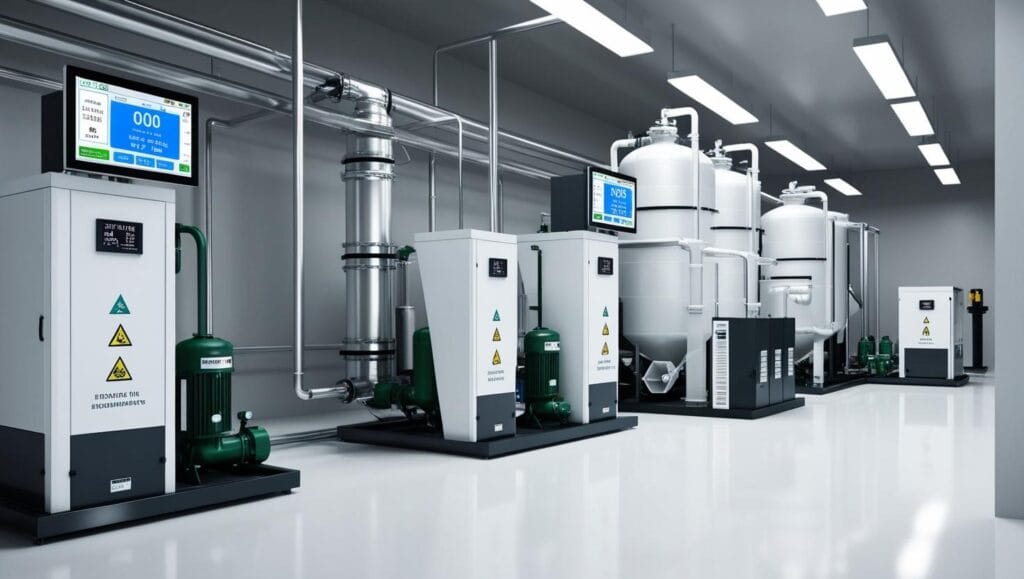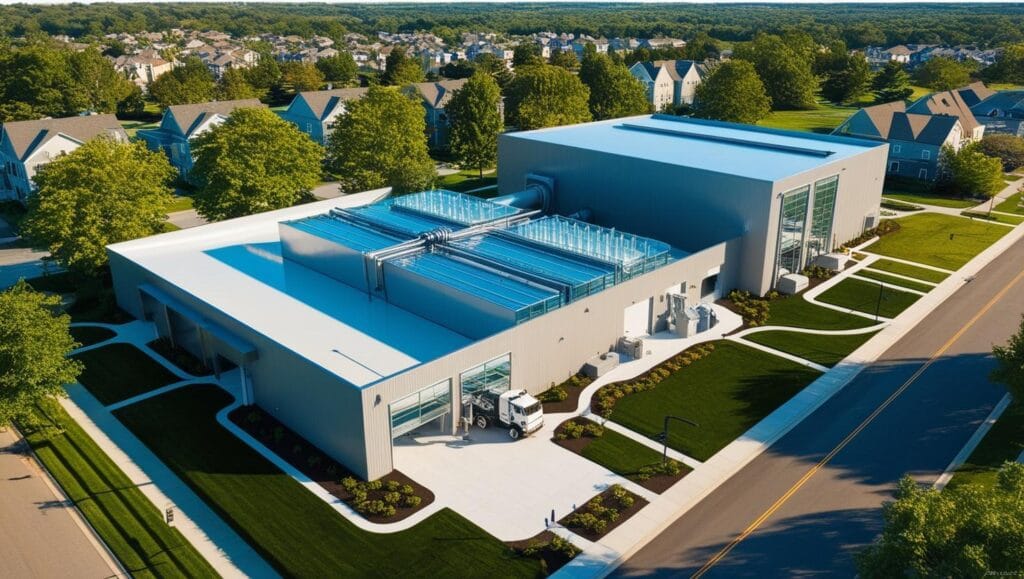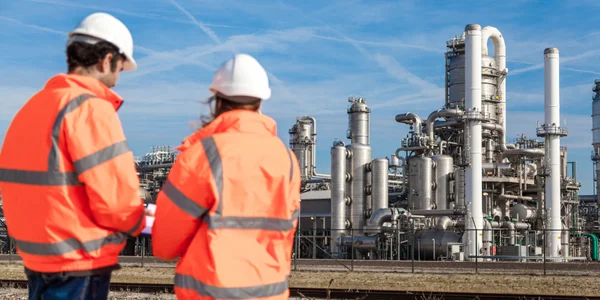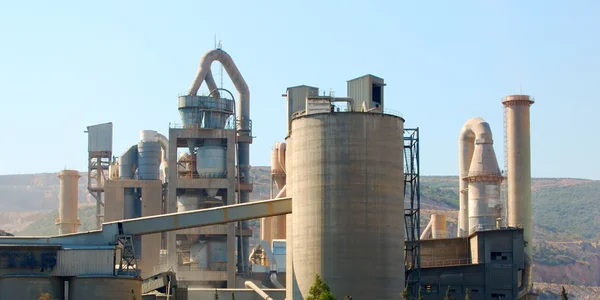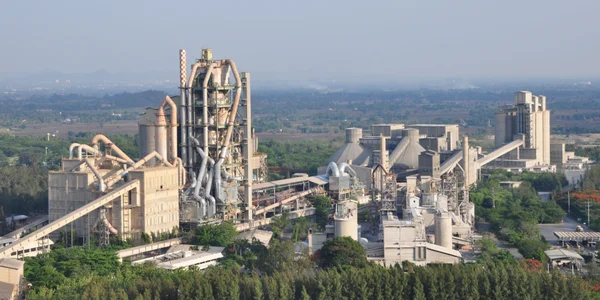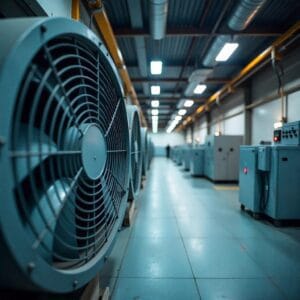VOC + Odour Removal System for Industry
The Intensiv Filter Himenviro VOC + Odour Removal System is a cutting-edge solution designed to eliminate volatile organic compounds (VOCs) and odorous gases from industrial emissions. This advanced system ensures compliance with stringent environmental regulations while creating a healthier work environment and reducing environmental impact. Utilizing innovative technologies such as thermal oxidation, activated carbon adsorption, and biofiltration, this system is highly effective across diverse industries, including food processing, chemical manufacturing, waste management, and pharmaceutical production. With a focus on efficiency and sustainability, the VOC + Odour Removal System is tailored to meet the unique requirements of each application, ensuring optimal performance and long-term reliability.
Our Products Application for Operational Benefits
The Intensiv Filter Himenviro VOC + Odour Removal System is a vital component for industries aiming to improve air quality and meet environmental compliance standards. By removing harmful VOCs and odorous emissions, this system not only ensures regulatory compliance but also enhances workplace safety and reduces community complaints. Its customizable and energy-efficient design offers a long-term solution to air pollution challenges, allowing industries to maintain productivity while upholding sustainability goals.
Our Products Application for Solution in Place Filter
Applications |
|---|
Cement Industry |
Steel Plants |
Chemical Processing |
Power Plants |
Pharmaceutical Industry |
Glass Manufacturing |
Food Processing |
Waste-to-Energy Plants |
Fertilizer Industry |
Key Features and Benefits |
|---|
High Efficiency |
Energy OptimizationMulti-Technology Integration |
Energy Efficiency |
Customizable Design |
Environmentally Friendly |
Durable Construction |
Low Maintenance Requirements |
Scalable Solutions |
Safe Operation |
Advantages |
|---|
Improved Operational Efficiency |
Cost-Effective Solution |
Robust Design |
Environmentally Sustainable |
Flexible Configuration |
Minimized Downtime |
Proven Reliability |
Enhanced Equipment Life |
User-Friendly Operation |
Connect with us for Expert Consultation
Explore Our Other Services !
Frequently Asked Questions
A VOC & Odour Removal System is an integrated air treatment solution designed to capture and eliminate volatile organic compounds (VOCs), odorous gases, and toxic vapors from industrial exhaust streams. These pollutants arise from processes in chemical, pharmaceutical, food processing, waste-to-energy, and wastewater treatment plants. Effective VOC/odour removal ensures regulatory compliance, protects operator and community health, and reduces nuisance complaints from nearby areas. Companies like Amalgam Biotech and Condorchem highlight the importance of source capture and tailored treatment stages for optimal results.
Activated carbon systems work by passing contaminated air through carbon media, where odorous and volatile molecules are adsorbed onto the porous surface of the carbon. Proprietary grades like VZ ActiveVOC™ ensure selective adsorption of challenging compounds. Carbon beds generally last 1–2 years, depending on inlet concentrations and need type-specific recharging or replacement when saturated.
Modern systems blend multiple treatment technologies. Activated carbon adsorption remains standard for organic vapors, with high-efficiency carbon grades able to remove compounds like VOCs, mercaptans, H₂S, and ammonia with 95–99% efficiency. Biofiltration (biofilters or biotrickling filters) harnesses microbial degradation to handle VOCs and odors biologically, often achieving greater than 90% removal. Chemical wet scrubbers, mechanical scrubbers, or thermal oxidation units may also be used, depending on the contaminant profile.

